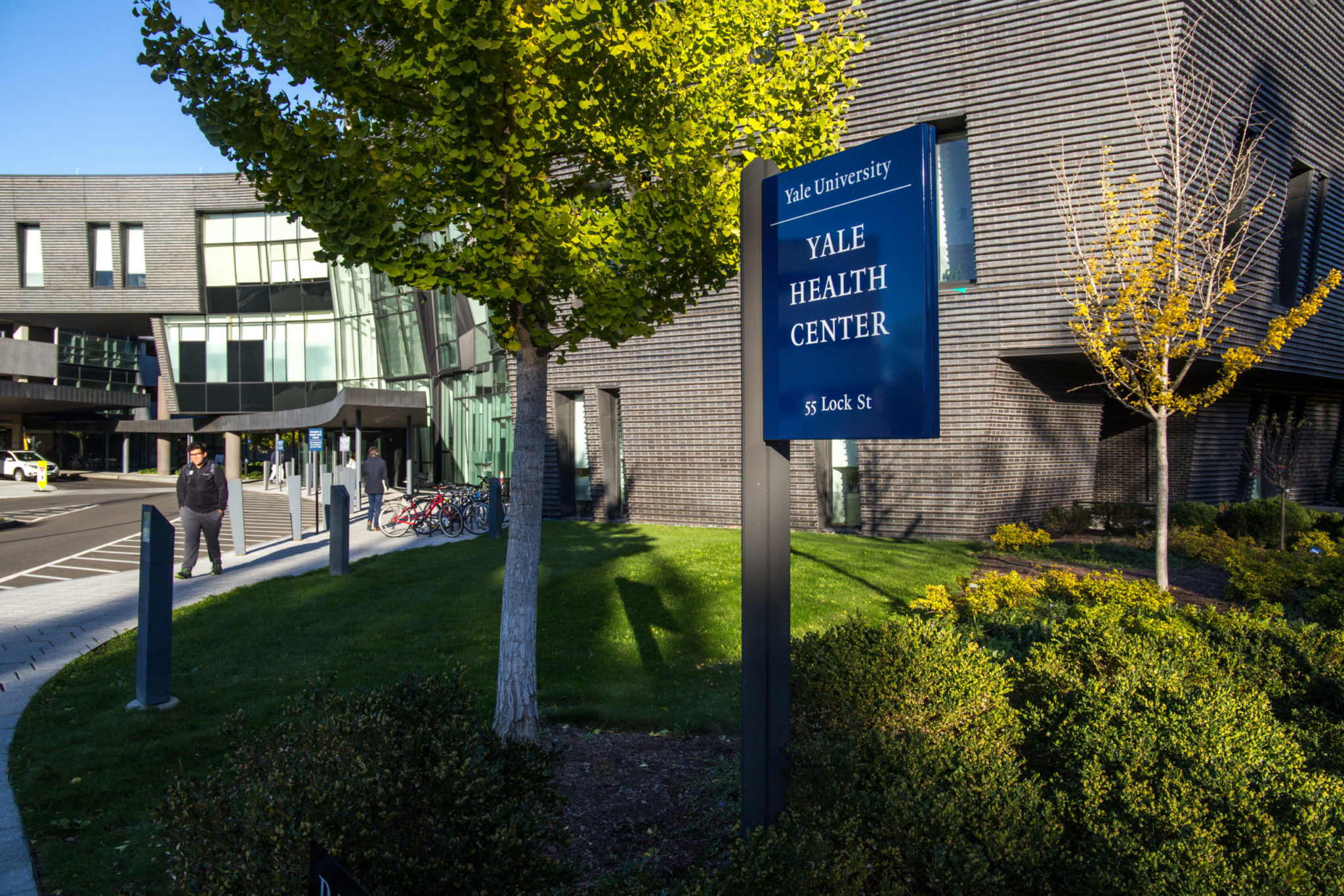
Lucas Holter, Senior Photographer
In residential college courtyards and clinics, Yale Health is administering flu shots in preparation of this year’s flu season. As both students and faculty sign up to receive their vaccines, the COVID-19 pandemic is prompting the University’s healthcare workers to adapt to a socially distanced environment.
Over the past few weeks, students, faculty, staff and other members of the Yale community have been encouraged to get their flu shots, made easily accessible at various spots around campus. Nurses in personal protective equipment have set up tables near COVID testing stations for undergraduate students within their residential colleges, and Yale Health has made scheduled appointments at 55 Lock St. and vouchers for nearby pharmacies available as choices for the entire Yale population, regardless of their insurance status.
Although at first glance Yale’s approach to the flu season differs from years past, the COVID-19 pandemic has done little to hinder the efficiency and effectiveness of its flu shot administration due to extensive planning and a complete reimagining of the program.
“This year, because of the current pandemic, the usual mass events where people come in crowds really can’t be had, so as a result, we needed to reorganize the whole process,” said Paul Genecin, chief executive officer and director of Yale Health. “We’ve been planning this for months.”
As Yale Health adjusts to the current conditions by creating smaller clinics and spacing out appointment times, it has, so far, been able to reach more than 5,000 people, including over 2,500 students.
In a usual year, Yale Health hosts large events where 2,000–4,000 people would be immunized, yet these gatherings require a significant number of people to occupy the same, relatively confining spaces, according to Genecin. He added that now, because of social distancing and masks, “it’s completely different this year from an ordinary year.”
In any given year, flu shots are administered throughout the country as a preventive measure with the goal of protecting individuals who are more susceptible and are at a greater risk of complications.
“In the last century, there’s been more vaccines, and nothing has been more important in terms of preventing disease, disability and death,” said Robert Bazell, adjunct professor in the Department of Molecular, Cellular and Developmental Biology, who also served for 38 years as chief science and health correspondent for NBC News. “Vaccines are astoundingly important in public health.”
The influenza vaccine is proven to prevent or decrease severity of the flu in affected individuals, in addition to preventing its further spread throughout the community. Still, before the pandemic, young people were often less motivated to go and get a vaccine due to their inexperience with infectious diseases in general.
In Bazell’s opinion, a lot of people have not lived through infectious diseases, such as polio, and as a result are not conscious of those diseases’ ability to spread and their general detriment to public health — but COVID-19 has changed that.
“If you haven’t seen that kind of thing with your eyes, you don’t remember,” said Bazell in reference to a polio outbreak in the late 1950s. “There’s no question that it’s more important this year than any other time,” he added.
Students coming back to campus this fall agreed to receive their flu shots as part of the Community Compact. In reference to this, both Genecin and Bazell emphasized the importance of reducing the spread to vulnerable groups, especially within Yale New Haven Hospital.
As both COVID-19 and flu viruses cause individuals to experience similar symptoms, flu shots can prevent many complications and difficulties within the health system, potentially saving lives.
“Every year, Yale New Haven Hospital is full in the winter because of respiratory illness, principally influenza,” said Genecin. “[It makes it] more complicated to find out what’s wrong with them, increases the number of people who have to be in isolation or quarantine … basically saturating the health care facilities.”
The Yale community is coming together in support of the common goal of preventing flu spread this winter. The convenient locations and quick appointments, run by individuals from Yale Health such as Cheryl Carden, clinical manager of the Immunization Department, are widely appreciated by Yale’s undergraduates.
“It was so nice, it was right outside,” said Astri Doub ’24. “I think everyone should get the flu shot.”
Although Doub is a supporter and annual recipient of the influenza vaccine, one of her suitemates in Jonathan Edwards College, Emma Imakavar ’24, has never received one, originally due to her parents’ busy schedule in Riverside, California and now because of her egg allergy.
Imakavar expressed that she had tried to get a flu shot in the Jonathan Edwards courtyard but was told instead to make an appointment at Yale Health due to her allergy.
“The point of them coming here is to make it accessible, and they should have had the other modes of access for me to get a flu shot,” said Imakavar.
Still, Imakavar noted that she thinks mandatory flu shots will benefit the community, calling it “a good idea.”
Genecin emphasized the importance of collaboration within the Yale community to approach the obstacles posed by current national health conditions.
“One of the most important reasons for vaccination is to protect others,” Genecin told the News. “We’re aiming to try to get everybody in our community if we can.”
According to the CDC, flu activity peaks between December and February.
Amelia Lower | amelia.lower@yale.edu







